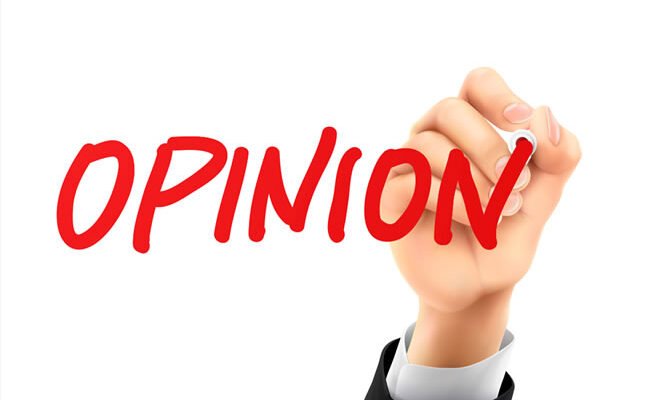Access to safe drinking water and safe and accessible sanitation is critical for human wellbeing, environmental sustainability, and economic development; and should be recognised as human rights at all levels of governance. The human rights-based approach has become increasingly recognised as a valuable means of promoting action on complex development challenges. The role of courts in advancing human rights, justice and equitable allocation of resources generally is evident in the increasing number of strategic and public interest litigations shaping human societies and governance institutions globally. Through human rights advocacy and court action, individuals and communities in Nigeria and other parts of the world have successfully held the government, the private sector, and other actors accountable for human rights violations on climate change, disability, and poverty-related issues. During the recent COVID-19 pandemic, courts were instrumental in securing access to essential services, including water services, for people in vulnerable situations. This piece highlights the potential for similarly promoting the recognition and enforcement of the human rights to water and sanitation through the courts in Nigeria.
Legal basis for the human rights to water and sanitation

Human rights are indivisible and intricately linked, such that upholding one human right could benefit other human rights directly or indirectly, if done effectively. Conversely, even where the domestic laws do not specify a given right, it would be possible to imply it through other formally recognised rights within the legal system. One of the reasons for this could be that the implied right is essential to realising the expressed right. An apt illustration of the interconnectedness of human rights is critical importance of access to water and sanitation for health, life, wellbeing, and most other human rights. Universal access to water, sanitation and hygiene is also a priority for international and regional development, as seen in the UN Sustainable Development Goals (SDG 6) and the AU Agenda 2063.
Globally, the human rights to water and sanitation have developed closely and feature in several domestic laws. The human right to water first evolved in international law as a necessity for other human rights, with sanitation also recognised as a requirement for water quality. In 2015, the United Nations General Assembly recognised sanitation as an independent right. There are still more cases and laws on the human right to water than the right to sanitation, partly reflecting the dominance of water rights issues in the scholarly literature and public discourse. However, the history of sanitary reforms in Britain and other parts of Europe, for instance, has highlighted the limitations of the traditional approach to prioritising water access over human dignity, health, and wellbeing. It is therefore important to prioritise sanitation services alongside water access.
Although the 1999 Constitution of the Federal Republic of Nigeria (the Constitution) does not expressly guarantee the human rights to water and sanitation, there is still a solid legal basis for enforcing the rights drawing on international human rights law and domestic laws, including the Constitution and the African Charter on Human and Peoples Rights Ratification Act 1983. Remarkably, while it may be possible to imply the human rights to water and sanitation through existing human rights laws in Nigeria, express recognition is a more desirable position for ensuring the enforcement of these rights. Otherwise, implied recognition could constrain the independent development of the elements of the implied right. Also, it would be complicated to establish the violation of an implied right without first demonstrating a breach of the expressed right.
The removal of the strict requirements on legal standing, which was previously a significant stumbling block in the process of litigating human rights claims, makes it possible for human rights advocates, activists, and non-governmental organisations to commence legal proceedings in courts on behalf of communities or individuals who are suffering human rights violations or face related risks across Nigeria. The Fundamental Rights (Enforcement Procedure) Rules 2009 welcomes public interest litigations on human rights and provides that “no human rights case may be dismissed or struck out for want of locus standi”. The Supreme Court of Nigeria has also endorsed the relaxed approach to the rule on legal standing, thereby creating an opportunity for various actors to commence human rights enforcement proceedings on behalf of others.
What good can come from enforcing the human rights to water and sanitation through the courts?
The examples of human right to water and sanitation litigation in other countries, including South Africa, Botswana, and Kenya, shows a range of reliefs that courts can grant to improve the situation of unserved or underserved populations. Courts have issued orders restoring water and sanitation services to people who suffered unlawful forced eviction, addressing poor quality of services or non-engagement of the public in the implementation of water and sanitation projects, preventing the disconnection of services for people who cannot afford to pay the tariffs, and upheld related public interest litigation for promoting access to water, sanitation, and hygiene. Most decisions are from lower courts, except in a few cases from countries such as Argentina, South Africa, India, Chile, Costa Rica, and Panama.
The evidence suggests that there is significant potential to drive the enforcement of the human rights to water and sanitation in Nigeria through the high courts across the country. Human rights activists, advocates, non-governmental organisations, individuals, and community representatives could proceed on the basis on existing human rights provisions. Alternatively, litigants can also invite the courts to make pronouncements advancing access to water and sanitation in cases involving related legal issues such as human dignity, adequate housing standards, prevention of malnutrition and stunting in children, and the quality of the environment in workplaces or schools, already protected by domestic laws.
- Obani is an associate professor in the School of Law, University of Bradford and vice chair of the expert committee of Human Right to Water (HR2W).
READ ALSO FROM NIGERIAN TRIBUNE







